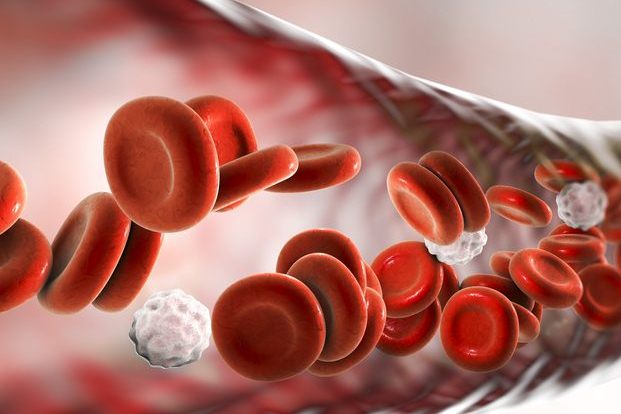Blood disorders that affect Red blood Cells
Apr 19, 2022
A blood cell disorder is a condition in which there’s a problem with your red blood cells, white blood cells, or the smaller circulating cells called platelets, which are critical for clot formation. All three cell types form in the bone marrow, which is the soft tissue inside your bones. Red blood cells transport oxygen to your body’s organs and tissues. White blood cells help your body fight infections. Platelets help your blood to clot. Blood cell disorders impair the formation and function of one or more of these types of blood cells.

Types of blood disorders:
- Anemia- Individuals having anemia have a lower count of red blood cells. A mild anemia often does not lead to any symptoms. More severe anemia may lead to pale skin, fatigue & shortness of breath along with exertion.
- Iron-deficiency anemia– Iron is important for the body to produce red blood cells. Low intake of iron & blood loss because of menstruation is the most common reasons for iron-deficiency anemia. It may also be a result of the loss of blood from GI tract due to cancer or ulcers. The treatment involves iron pills and rarely blood transfusion.
- Anemia of chronic disease– Individuals having chronic kidney disease or any other chronic diseases tends to develop anemia. Anemia of chronic disease usually does not need treatment. Injections of a synthetic hormone, Epogen or Procrit (epoetin alfa), to stimulate the production of the blood cells or the blood transfusions could be important in few individuals with this kind of anemia.
- Pernicious anemia or B12 deficiency– It is a condition which prevents our body from absorbing enough B12 in the diet. This can be a result of a weaker stomach lining or an autoimmune condition. Apart from anemia, the nerve damage or neuropathy could finally result. High doses of the B12 prevent long-run issues.
- Aplastic anemia– In patients having aplastic anemia, their bone marrow doesn’t make enough blood cells also including the red blood cells. This could be a result of a host of conditions such as hepatitis, Epstein-Barr, or HIV to the side effects of drugs, to chemotherapy medications, to pregnancy. Blood transfusions, medications and also a bone marrow transplant might be needed for treating aplastic anemia.
- Autoimmune hemolytic anemia– In individuals having this condition, an overactive immune system destroys the own red blood cells of the body, leading to anemia. Medicines which suppress our immune system i.e. prednisone could be needed to stop this process.
- Thalassemia– It is a genetic form of anemia which mostly affects individuals of Mediterranean heritage. Most individuals have no symptoms & need no treatment. Others can require regular blood transfusions for relieving anemia symptoms.
Amongst the other disorders are Sickle cell anemia, polycythemia vera and malaria.









